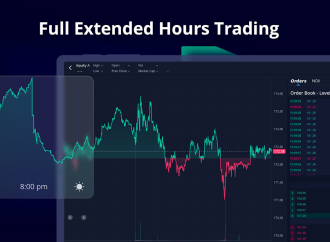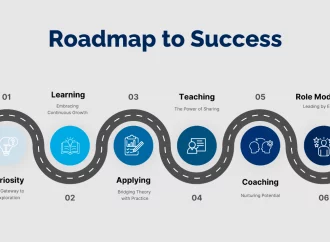Depression can be a crippling condition that affects millions of people worldwide. And with the rise of social media, it’s becoming increasingly challenging to escape the cycle of negative thoughts and emotions. But there is hope! In this blog post, we’ll explore some effective strategies for breaking free from depression in today’s digital age. Whether
Depression can be a crippling condition that affects millions of people worldwide. And with the rise of social media, it’s becoming increasingly challenging to escape the cycle of negative thoughts and emotions. But there is hope! In this blog post, we’ll explore some effective strategies for breaking free from depression in today’s digital age. Whether you’re dealing with mild or severe symptoms, these tips will help you take control of your mental health and start living a happier life. So let’s dive in and discover how to overcome depression once and for all!
The Relationship Between Social Media and Depression
The relationship between social media and depression is a complicated one. On the one hand, social media can be a great way to connect with others and share your life with the world. However, it can also be a breeding ground for comparison, jealousy, and other negative emotions. When used in moderation and with intention, social media can be a positive force in your life. But if you find yourself struggling with depression, it may be time to take a break from social media or at least use it differently.
Here are some tips for using social media in a way that supports your mental health:
– Be intentional about who you follow and what you see. Unfollow anyone who triggers negative feelings or posts excessively about perfect lives. Fill your feed with content that makes you feel good.
– Use social media as a way to connect with others, but don’t compare your life to theirs. Remember that people only post their highlights reel – the good stuff – and not the mundane day-to-day reality that we all experience.
– If you’re feeling down, reach out to someone you trust instead of turning to social media. Talking to someone face-to-face (or even via text or chat) is a much better way to get support than scrolling through photos and posts online.
How Social Media Can Be Used to Break the Cycle of Depression
It’s no secret that social media can be a breeding ground for negative thoughts and comparison. But what if we could use social media to break the cycle of depression?
Here are some ways that social media can be used to break the cycle of depression:
1. Connect with others who understand what you’re going through.
There are many online communities of people who are dealing with depression. Connecting with others who understand what you’re going through can help you feel less alone and give you some valuable perspective.
2. Use social media to express yourself in a positive way.
Spending time on social media doesn’t have to be a negative experience. Use it as an outlet to express yourself in a positive way. Share your talents, accomplishments, and anything else that makes you feel good about yourself.
3. Be mindful of the content you consume on social media.
Scrolling through your feed can be a trigger for negative thoughts and emotions if you’re not careful. Be mindful of the content you consume on social media and try to balance it out with positive, uplifting content as well
Strategies for Overcoming Depression
If you’re struggling with depression, you’re not alone. In the age of social media, it’s easy to feel like everyone else is leading a perfect life while you’re stuck in a rut. But the truth is, nobody’s life is perfect. We all have our own struggles and challenges to overcome.
There are a number of strategies you can use to overcome depression. Here are a few of the most effective:
1. Seek professional help. If your depression is severe, don’t try to go it alone. Seek out professional help from a therapist or counselor who can help you develop healthy coping mechanisms.
2. Get active and stay active. Exercise is a great way to boost your mood and reduce stress levels. Even if you don’t feel like working out, force yourself to get moving and do something active for at least 30 minutes a day.
3. Connect with others. Isolation can make depression worse, so make an effort to connect with friends, family, or even strangers on a regular basis. Join a club, take a class, or volunteer for a cause you care about. Doing good for others can also help boost your mood and give you a sense of purpose.
4. Do something creative. Expressing yourself through art, music, writing, or another creative outlet can be very therapeutic and can help you work through difficult emotions. Don’t worry about whether or not what you’re creating is good – just let yourself
Conclusion
Social media can be a powerful tool to help people who are struggling with depression. While it is important to recognize the potential pitfalls of too much use, social media can also provide support and connection that might otherwise be missing in one’s life. By understanding how depression works and the strategies for managing it, we can better equip ourselves to not only reduce our risk of developing depression but also break out of its cycle if we find ourselves stuck in it. With these tools at hand, hopefully, more individuals will find their mental health thriving rather than suffering during this era of technology-driven communication.
The Relationship Between Social Media and Depression
There is no denying that social media has had a profound impact on the way we communicate and interact with each other. But there is also a growing body of evidence to suggest that social media can have a negative impact on our mental health, particularly when it comes to depression.
A study published in the journal Clinical Psychological Science found that people who use social media more often are more likely to report symptoms of depression. The study’s authors say there are several possible explanations for this link, including the fact that people who are already depressed may be more likely to turn to social media as a way of coping. Additionally, the constant comparison that takes place on social media can lead to feelings of inadequacy and dissatisfaction with one’s own life.
While it’s important to be aware of the potential risks associated with social media use, it’s also important to remember that depression is a complex illness with many different causes. For most people, the solution is not to completely avoid social media, but rather to find a healthy balance that works for them. Here are some tips for doing just that:
– Limit your time on social media: Make sure you’re not spending hours upon hours scrolling through your feed every day. If you find yourself getting lost in social media, set limits for yourself and stick to them.
– Be selective about who you follow: Unfollow anyone who regularly posts negative or triggering content. Fill your feed with positive accounts that make you feel good about yourself and your
How to Break the Cycle of Depression
If you’re caught in the cycle of depression, it can be difficult to break free. But there are some strategies that can help.
First, try to identify what’s triggering your depression. It could be a specific event, such as the loss of a job or a relationship. Or it could be something more general, like feeling isolated or down about your life in general. Once you know what’s triggering your depression, you can start to develop a plan to address it.
If you’re feeling isolated, for example, reaching out to family and friends or joining a support group may help you feel less alone. If negative thoughts are part of your problem, Cognitive Behavioral Therapy (CBT) can be an effective treatment option. And if you’re struggling with a major life change, like the death of a loved one or divorce, seeking professional counseling can make a big difference.
Whatever approach you take, it’s important to be patient and consistent. Breaking the cycle of depression takes time and effort, but it is possible. With the right support and strategies in place, you can start to feel better and get your life back on track.
Warning Signs of Depression
There are many warning signs of depression, but here are some of the most common:
1. Feeling down, sad, or hopeless for extended periods of time.
2. Loss of interest in activities that were once enjoyed.
3. Sleeping too much or too little.
4. drastic changes in appetite or weight.
5. Feeling restless or irritable.
6. Difficulty concentrating or making decisions.
7. Fatigue or decreased energy levels.
When to Seek Help
When to Seek Help
If you find yourself experiencing any of the following symptoms on a regular basis, it may be time to seek professional help:
1. Feeling sad or “empty” most of the time
2. Loss of interest in activities that you once enjoyed
3. Insomnia or oversleeping
4. Overeating or appetite loss
5. Fatigue or decreased energy levels
6. Feelings of worthlessness or guilt
7. Difficulty concentrating or making decisions
8. Thoughts of death or suicide
Conclusion
Breaking the cycle of depression in the age of social media can be a difficult task, but with dedication and commitment to yourself and your wellbeing, it is possible. It is important to remember that no one person’s journey with depression will be exactly the same; therefore, being open-minded to different strategies and treatments is essential. Whether it’s taking time away from technology or seeking help from a mental health professional, there are solutions available to anyone suffering from depression in this digital age.





















Leave a Comment
Your email address will not be published. Required fields are marked with *